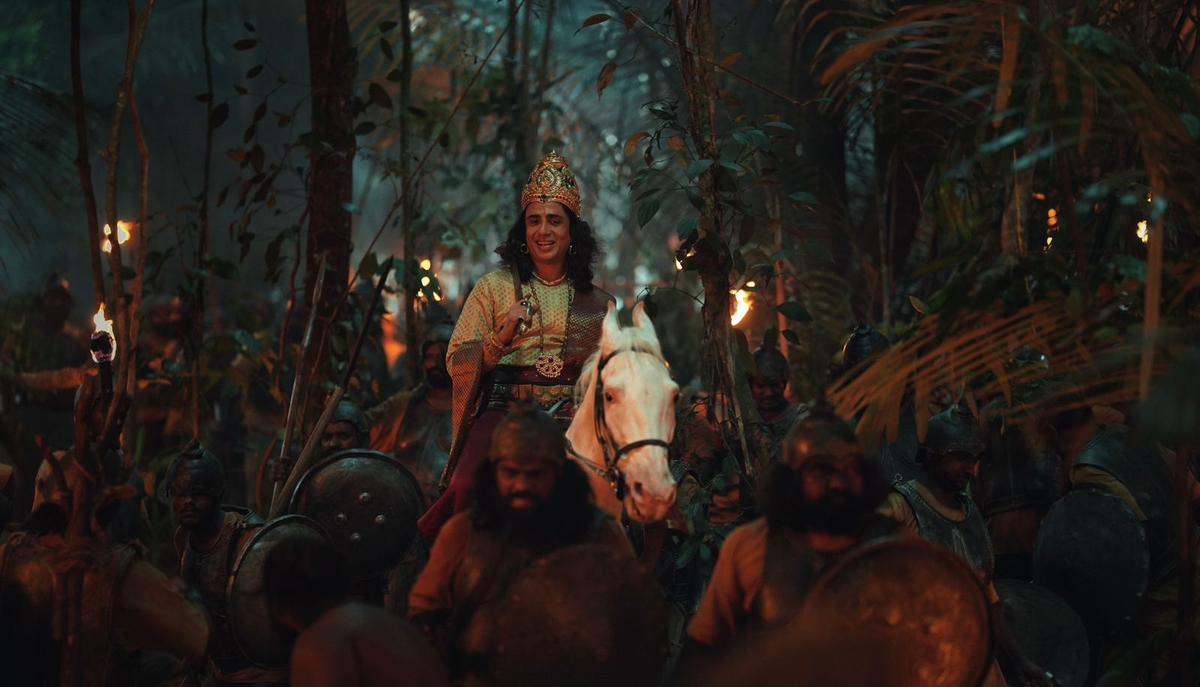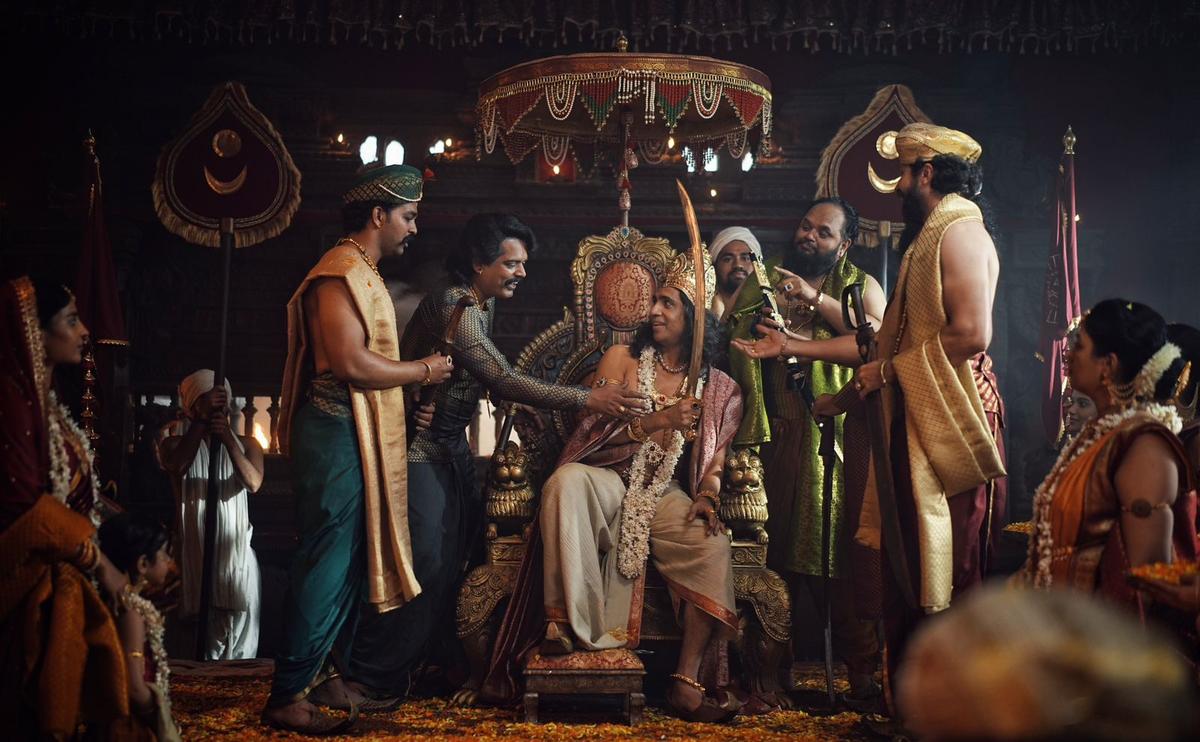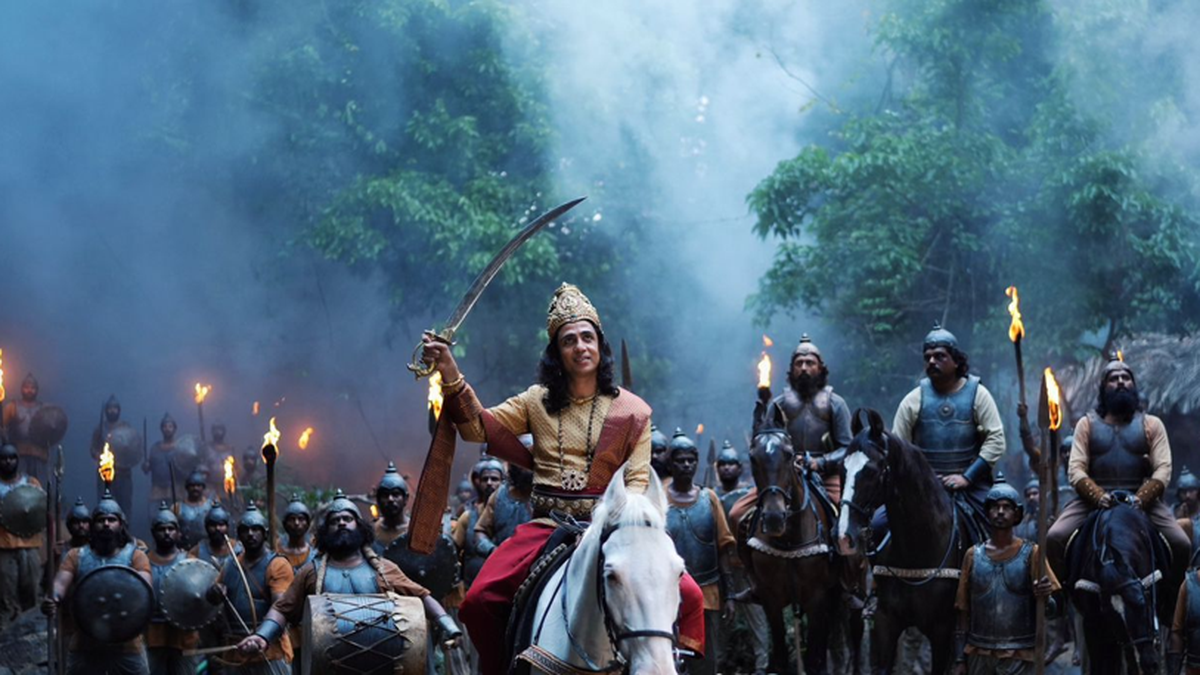Gulshan Devaiah has an envious presence on social media. The place can be addictive and toxic, but not for the Kantara: Chapter 1 antagonist, who has turned into a playground. Interacting with his admirers since the release of Rishab Shetty’s much-hyped prequel, the Hindi actor is having fun on X (formerly Twitter) with witty replies and harmless banter. He is also sportingly taking some snappy comments in his stride.
“When I first began exploring social media, I wasn’t comfortable using it. I slowly began to figure out what it meant to me. I realised that I had to use it as an authentic reflection of myself. For instance, if I talk to you face-to-face, it shouldn’t be different from our chat on social media. I told myself that if it’s not fun, then there is no point being on social media,” he tells The Hindu.

People seem to be loving his approach as they are flooding the actor with messages and accolades for his portrayal of King Kulashekhara in Kantara Chapter 1, theprequel to the 2022 hit Kantara. “It’s blown up so much that I am not able to respond to everything. People are saying such nice things about my performance. They are happier for me than I am for myself. I see comments such as ‘finally this guy is getting the success he deserves’.”
Kantara: Chapter 1 is Gulshan’s maiden project with Rishab. The seeds of this collaboration were planted in 2019, when the two met for a masala dosa at the now extinct New Krishna Bhavan in Malleswaram. “We met through our common friend, actor PD Sathish Chandra,” says Gulshan about the meeting. The trio’s selfie outside the restaurant, opposite Sampige Theatre, is now viral on social media.
Gulshan, a Bengaluru boy, had moved to Mumbai to pursue his acting dreams. He wasn’t aware of the developments in Kannada cinema and hadn’t seen Rishab’s works. What caught Gulshan’s attention was Rishab’s passion to tell stories. “His stories were rooted, originating from the region (Kundapura) he grew up in. He didn’t want to do just films. He wanted to do cinema. I felt like working with him after our first meeting,” he recollects.
The duo was supposed to collaborate for Rudraprayag, starring Anant Nag in the lead. Rishab shelved his directorial due to the pandemic and moved on to acting projects. “I had a hunch that he would call me again. I knew he would write something for me.” Gulshan was right, as he received a call for Kantara: Chapter 1. “Rishabwrote Kulashekhara keeping me in mind,” says the actor.
In the period drama set centuries ago, Gulshan plays Kulashekhara, a good-for-nothing, evil king with aplomb. He clashes with the tribal community residing in the forest of Kantara, headed by the fearless Berme (played by Rishab Shetty). Gulshan sets the tone for his character in his first scene, where he insults a priest during his coronation.

Gulshan Devaiah in the film.
| Photo Credit:
SPECIAL ARRANGEMENT
“In my mind, I had an image of an extremely entitled king. He is from a mighty kingdom, and his family is powerful. Everything belongs to him anyway, so he is lazy and perpetually drunk. He is everything that a king shouldn’t be. If people like Kulashekhara inherit power, they will destroy the world,” Gulshan describes his character.
Gulshan’s body language for the character is a testimony to his talent. Everybody hates Kulashekhara, people inside the story, and those watching him in the audience. “If you think people won’t like your character, then it will mess with your head. Be it a villain or a hero or even a small yet important character, I would like to essay it if it sounds interesting to me,” says Gulshan before going on to explain how he cracked the character.
“I tried lazy postures for Kulashekhara because that describes his state of mind. He is also self-conscious. That’s what makes such people dangerous. In the film industry, there are people with very sensitive egos. I have observed their personality and behaviour for years. So I based some part of my performance on my experience of dealing with them.”
Gulshan talents are on full display in a long sequence inside the forest, where he mercilessly orders the mass killing of the inhabitants. Riding on a horse and grinning as he sees people turn to corpses, mades him a formidable villain.
“Kulashekhara is too overconfident in that scene because he doesn’t know what’s going to happen to him next,” says the actor with a chuckle. “Jokes apart, I am proud of that sequence. The terrain was very rugged, and I am a novice horse rider. Horses are moody, and it’s very challenging to control them. We took almost 20 days to pull off the sequence without any major incidents. I am glad I came across natural and effortless in the scene.”

Gulshan with Pramod Shetty (second from left) and other actors in the movie.
| Photo Credit:
SPECIAL ARRANGEMENT
Kannada comes easily to the actor as he grew up in Bengaluru. However, he had to master the accent of the coastal Karnataka region. “The film’s co-writer, Shaneel Gautham (who played Ravi anna in the hit Su From So), helped me with the dialect. If I sound convincing, the credit must go to him.”
Gulshan, after making his mark in Anurag Kashyap’s brilliant The Girl in Yellow Boots (2010), carved a niche for himself by starring in interesting, grey characters. His career has been marked by unpredictability, with the viewer unable to guess his next move. Having never been boxed into one category, Gulshan starred in creative and out-of-the-box movies (Death In The Gunj, Mard Ko Dard Nahi Hota). He has a penchant for humour and can pull off multiple dialects, making him a dependable artiste for rooted stories (Dahaad).
Undeniably, Kantara: Chapter 1 is his biggest success, a widespread recognition after his breakthrough movie Hunterr, an adult comedy. Gulshan stresses that he isn’t going to “lose his head” over this nonstop attention.
“These projects are incidental. What I am witnessing is the conventional idea of success. When your film makes a lot of money, it has an impact on your career. That said, I have always done characters that have excited me. It may or may not work with people. I did a film called Carbaret because I found it interesting. However, nobody liked it. I don’t do theatre because the process isn’t exciting for me anymore. It’s the same with films. I will continue to act in a variety of roles and carve an uncharted path to my career till I love the craft.”

